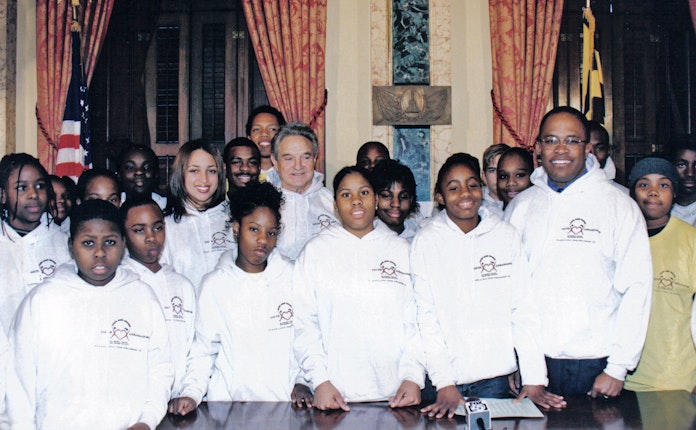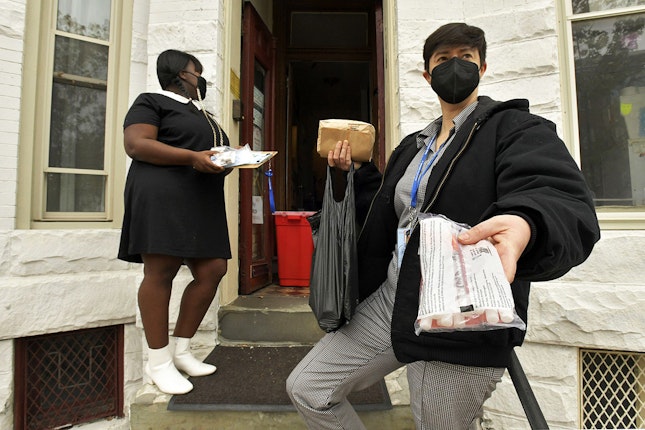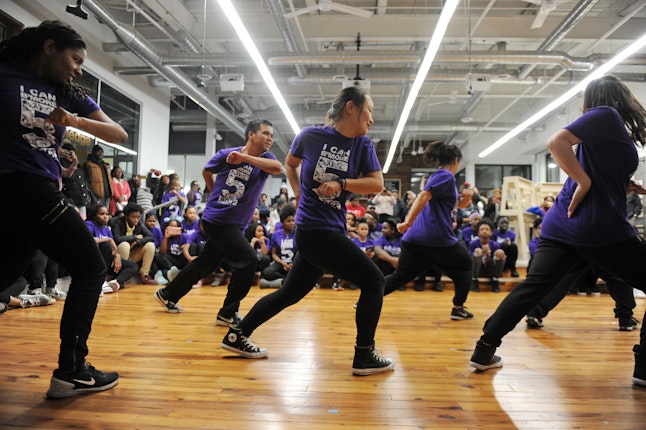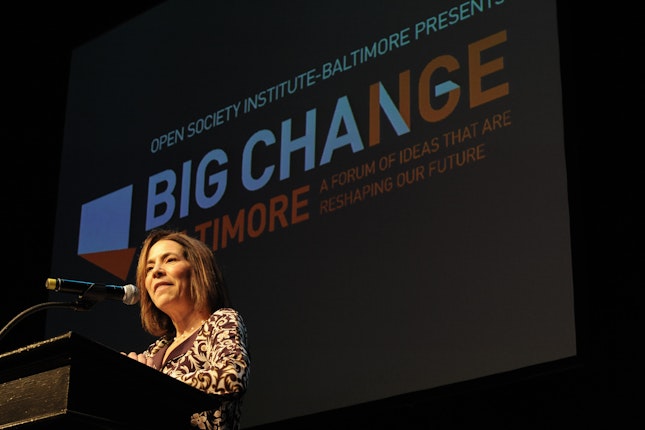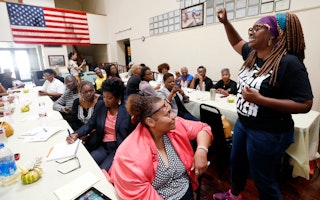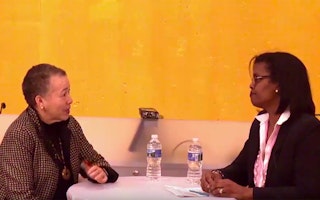A Quarter Century of Change in Baltimore
By Aryeh Neier

A defining feature of George Soros’s philanthropy since he launched his first national foundation in Hungary in 1984 is that, to a greater extent than any other foundation, its activities were guided by local knowledge.
That philosophy helped drive the decision to open an office in Baltimore in 1998, as a testing ground to address critical urban issues. It was my privilege, as then president of the Open Society Institute, to help open the office, which, following a 25-year run, is slated to sunset this summer.
We chose Baltimore mainly because we thought it epitomized the urban problems we wanted to address. The city suffered from economic problems that reflected a substantial decline in population caused largely by “white flight” from the city: a high level of drug addiction; a severe crime problem; and a public education system plagued by student and teacher absenteeism and by suspensions and expulsions from the schools.
Though Open Society’s U.S. Programs at times focused its activities on a few other cities, the Baltimore office was its only urban program with its own board and staff comprised entirely of local residents and a budget that largely operated autonomously.
Why Baltimore? As a proportion of its population, it probably had the highest proportion of injecting drug users of any city in the country.
But it seemed to us that Baltimore also had substantial resources with which to address these problems—resources that we could draw upon and that we might be able to mobilize. The year before we established OSI-Baltimore, Kurt Schmoke had become mayor. An African-American who served three terms and subsequently became dean of Howard University Law School, and today serves as president of the University of Baltimore, Schmoke was one of the first American elected officials to speak out critically about the “War on Drugs” (launched by President Nixon in 1971 and relaunched by President Reagan in 1984)—which contributed greatly to mass incarceration in the United States.
There were a number of other factors guiding our decision to locate in Baltimore. The city’s then-health commissioner, Peter Beilenson, was willing to work with us on treatment programs to address drug addiction. The University of Maryland’s Medical School and the world-renowned Johns Hopkins University Medical School, and institutions such as the NAACP and Catholic Relief Services, had chosen Baltimore as their headquarters. And the city had a number of philanthropic institutions with which we could develop funding partnerships. Finally, the development of the Baltimore waterfront had made the city a tourist destination.
From the start, OSI-Baltimore developed drug treatment programs; programs to address criminal justice issues; a youth development program that included initiatives focused on the schools and after-school programs; economic development programs to help launch small businesses and programs to assist city residents with transportation to employment opportunities outside the city; and a Community Fellowships program that has continued to the present day.
In its first year, Open Society spent more than $12 million on the activities of the Baltimore office. Over time, other philanthropies and donors in Baltimore helped to finance its activities.
Diana Morris became the founding director. I had known her when she was a program officer for the Ford Foundation, based at its headquarters in New York, and also at a field office in Nairobi, Kenya. She had moved to Baltimore when her husband’s employer, Catholic Relief Services, chose Baltimore as its headquarters. Before joining Open Society, she had directed a consortium of small foundations in Baltimore. She remained in the post for 21 years, stepping down in 2019.
In 2020, Danielle Torain, a young lawyer with deep experience in Baltimore policymaking circles and philanthropy, became the executive director of OSI-Baltimore. In her three years at the helm, the office continued its efforts to build a more just and equitable city by getting other philanthropies to join our efforts investing in new leaders and institutions. She also led efforts to reform criminal justice policies, bolster harm reduction programs, expand access to voting, and redirect capital to underserved communities.
For Open Society to continue to navigate a more complex world with difficult problems, the leadership has decided to shutter several programs and offices, including Baltimore’s, to direct more resources to other regions in the United States and in the Global South. OSI-Baltimore is winding down responsibly with a $20 million fund to help grantees secure future funding.
OSI-Baltimore built institutions and developed a generation of social justice leaders and entrepreneurs. It is now up to them to carry on the work that began a quarter century ago.

Aryeh Neier is president emeritus of the Open Society Foundations.
